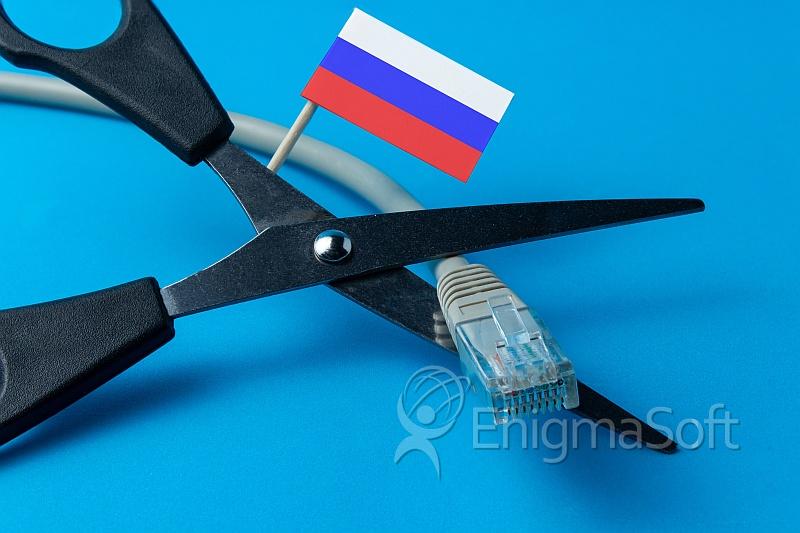Russia Decides to Issue its Own Website Certificates After Massive Wave of Sanctions

The massive waves of sanctions imposed by the US and the European Union against Russia, resulting from the Russian invasion of Ukraine, have resonated in yet another part of the digital landscape. It turns out, Russian websites are now unable to renew their TLS certificates because their owners are unable to execute bank payments to the certification authorities that are located abroad.
This effectively means those sites will be inaccessible in the absence of a valid TLS certificate. However, Russia seems to have found a solution, however strange it may seem.
Russian websites cannot renew international certification
Reports are in that Russia has established its own, domestic certification authority and will be issuing certificates to domestic websites so they remain accessible. The big issue here is, before those certificates are vetted by international authorities as well, they are not accepted by the majority of browsers.
Russian portal GosUslugi published an announcement, informing that the country's Ministry of Digital Development will furnish an analog certification service, to be used domestically. According to the website, the certification will be issuable within 5 days of the original request.
However, due to the fact that those certificates have not been internationally vetted and approved, they are not accepted by the majority of available browsers. If you are using Chrome or Edge, like most people using a Windows-based computer, you will still be greeted with the expired certificate message as those browsers simply do not accept the newly issued, Russian TLS certification. Currently, only the Russian Yandex browser and the open-source Atom browser accept the new certificates.
Domestic certification opens doors to potential abuse of power
New domestic certification has already been issued to some of the country's largest banking websites so they can continue operating normally, at least within the country, including Sberbank, the Russian National Bank, and VTB Bank.
The additional control and power to potentially filter content, spoof foreign services, and spy on users that this new measure gives Russian authorities caused concern among experts but was also expected, given recent developments. After the start of the conflict in Ukraine, Russia cut off access to Twitter and all websites and services operated by the Meta company, including Facebook and Instagram.